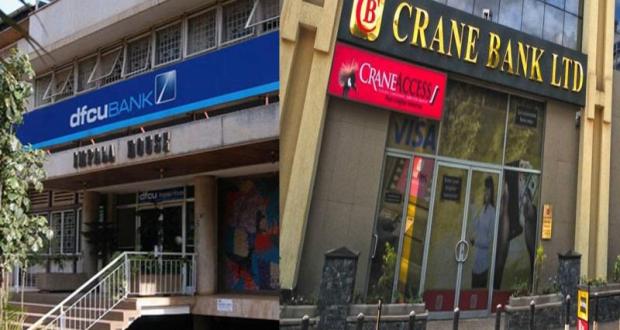Business
DFCU Bank In Trouble Again As Crane Bank’s Appeal Approved By The England High Court

By Gad Masereka
- Crane Bank Limited and its shareholders, including Sudhir Ruparelia, can prove their case in London, UK, after the Court of Appeal agreed to serious issues in the UK regarding the illegal sale of assets by the Bank of Uganda to Dfcu in 2017. The court ruled that part of the claims fall within the commercial activity exception and Public Policy exception.
Crane Bank’s appeal has been approved by the court in a judgement handed down on July 26, 2023 by Sir Julian Flaux, Chancellor of the High Court, and Lord Justice Popplewell on the grounds that there are important questions to be resolved regarding whether some or all of the appellant’s claims fall under the commercial activity exception and/or the public policy exception.

Ruling of the court
“In the current case, the BoU and its officials are accused of abusing their positions of trust and responsibility in a number of ways, but the main charge is that they did so with the corrupt intent of obtaining an unfair advantage in the form of sizable financial inducements from a third party buyer of CBL or its assets, in this case DFCU Bank. Due to its suspected role in compromising the BOU, I believe it is debatable that DFCU Bank cannot rely on the foreign act of state rule.
Accordingly, I would permit the appeal on the basis of the Public Policy Exception,” reads a portion of the decision made by Lord Justice Popplewell and Sir Julian Flaux, Chancellor of the Court of Appeal from the High Court of Justice Business and Property Courts in England.
In agreement with Sudhir Ruparelia and 7 additional applicants, the Court of Appeal claims that Crane Bank Limited (CBL) was acquired by DFCU bank and its stockholders through a clever corruption operation involving Bank of Uganda employees.
The Bank of Uganda employees at the centre of the transaction should be charged with corruption, the court advises.
In conclusion, the Court made the following rulings in favour of the owners of Crane Bank, who are the appellants:
Some of the court’s rulings in the appellants’ favour
- The appeal of the Claimants is accepted.
- The Pelling Order’s paragraphs 1-4 are disregarded.
- The First and Second Defendants as well as the Third to Fifth Defendants listed above have their applications dismissed.
- If a detailed assessment is not reached, the First to Fifth Defendants shall bear 75% of the expenses of the appeal and the costs below incurred by the Claimants.
- Within 14 days, the First through Fifth Defendants must pay the Claimants £700,000 in payment of the costs mentioned in paragraph 4 above.
- The funds paid to the First through Fifth Defendants in accordance with Section 4 of the Pelling Order (as modified by the Second Pelling Order) must be returned to the Claimants within 14 days, with interest calculated at a 4.5% annual rate from October 27, 2022, through the date of repayment.
The decision follows a lower court decision in which both DFCU and BoU were cleared of wrongdoing in a $211 million lawsuit by Lord Pelling QC of the High Court of Justice of England and Wales, sitting in London, on October 19, 2022.
In the meantime, it’s important to note that this is yet another sweet victory for business tycoon Sudhir Ruparelia, owner of the defunct Crane Bank, who in July 2022 overcame BoU IN Supreme Court regarding the sale of his bank.
In October 2016, the central bank shut down Crane Bank, stating it lacked adequate capital. The central bank and Sudhir had been engaged in a protracted conflict for more than four years when the 2022 decision was made. The Supreme Court decided that Crane Bank should be returned to Sudhir and ordered BoU to cover all costs, which are expected to total more than Ugx200 billion.
